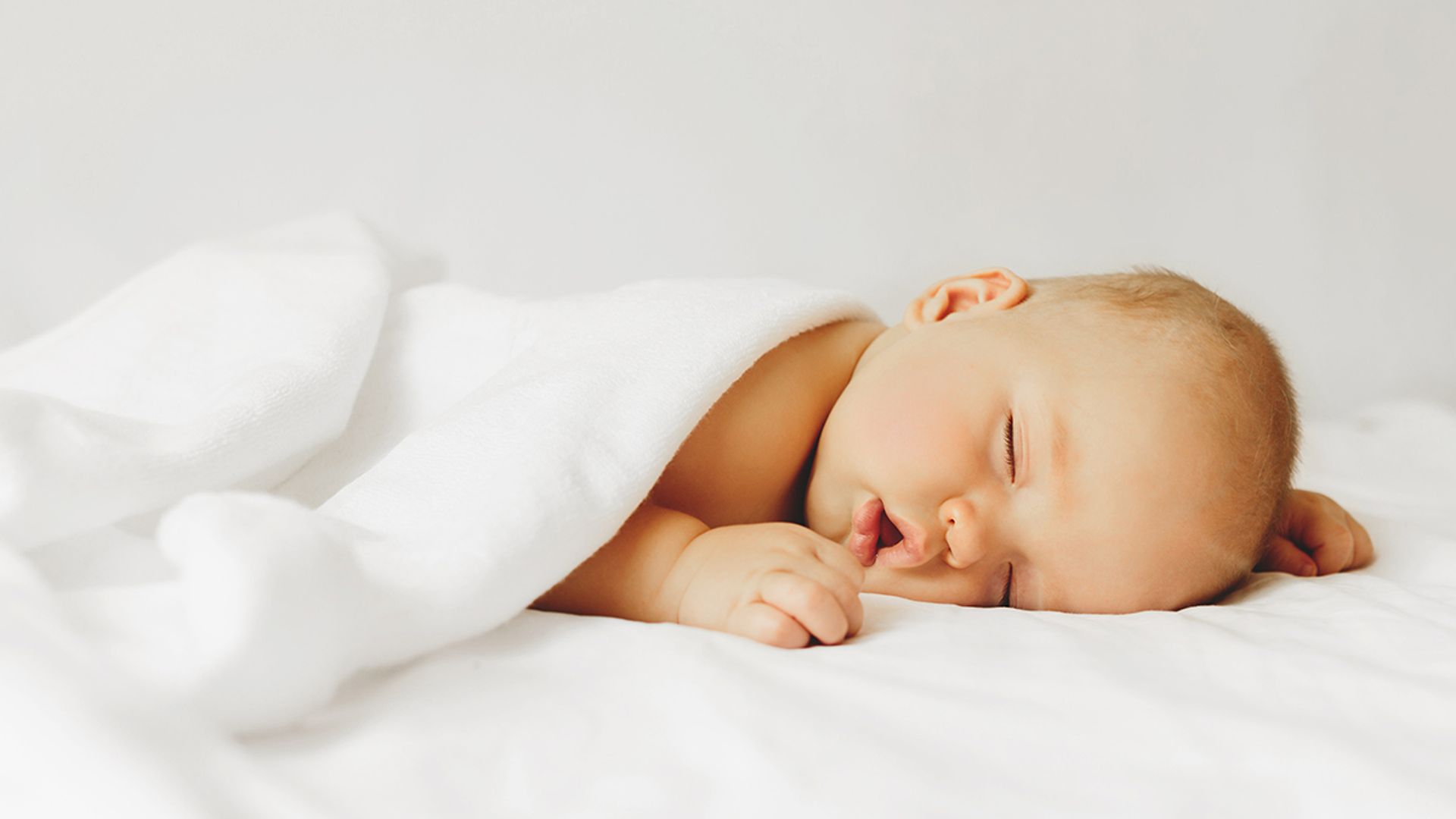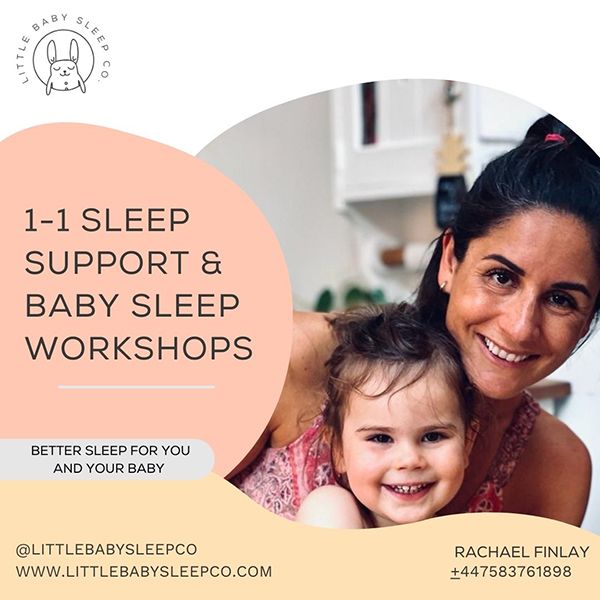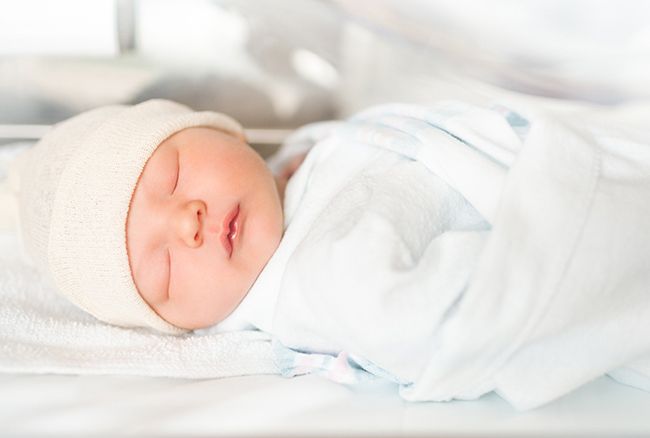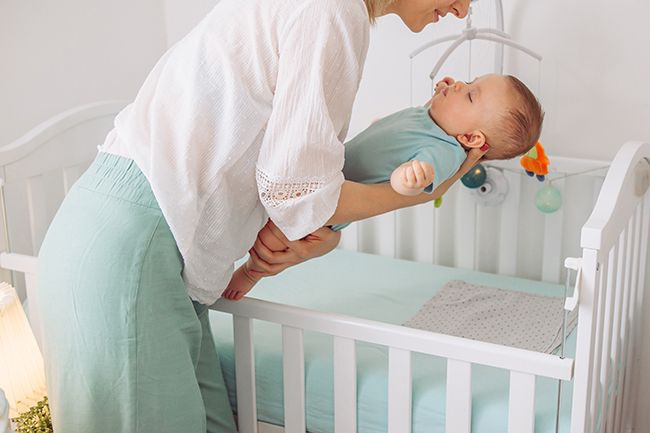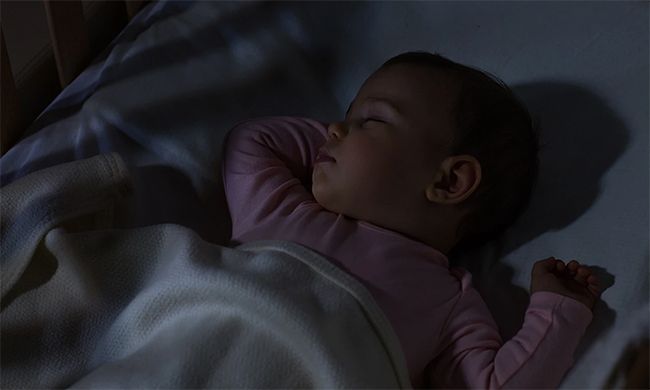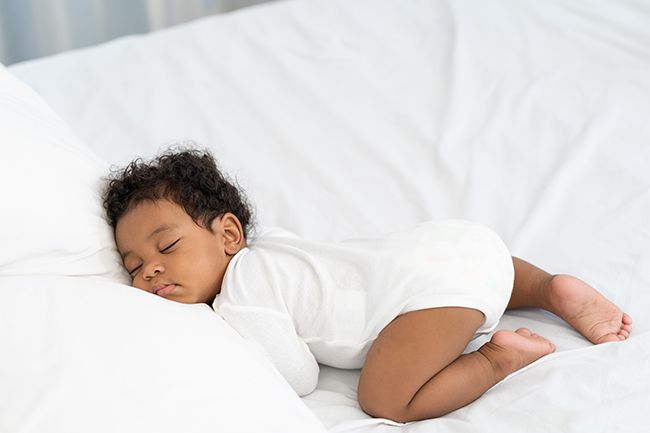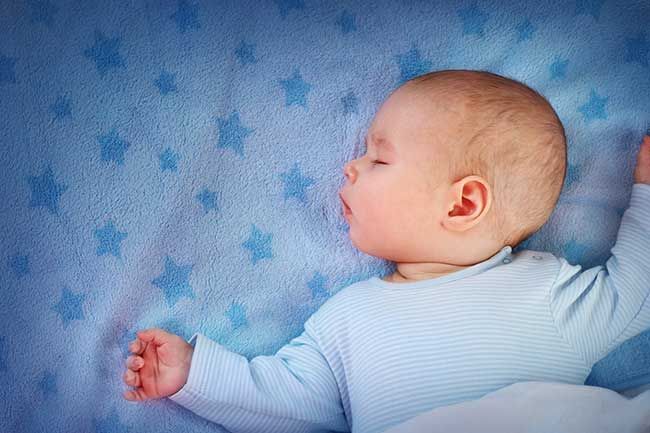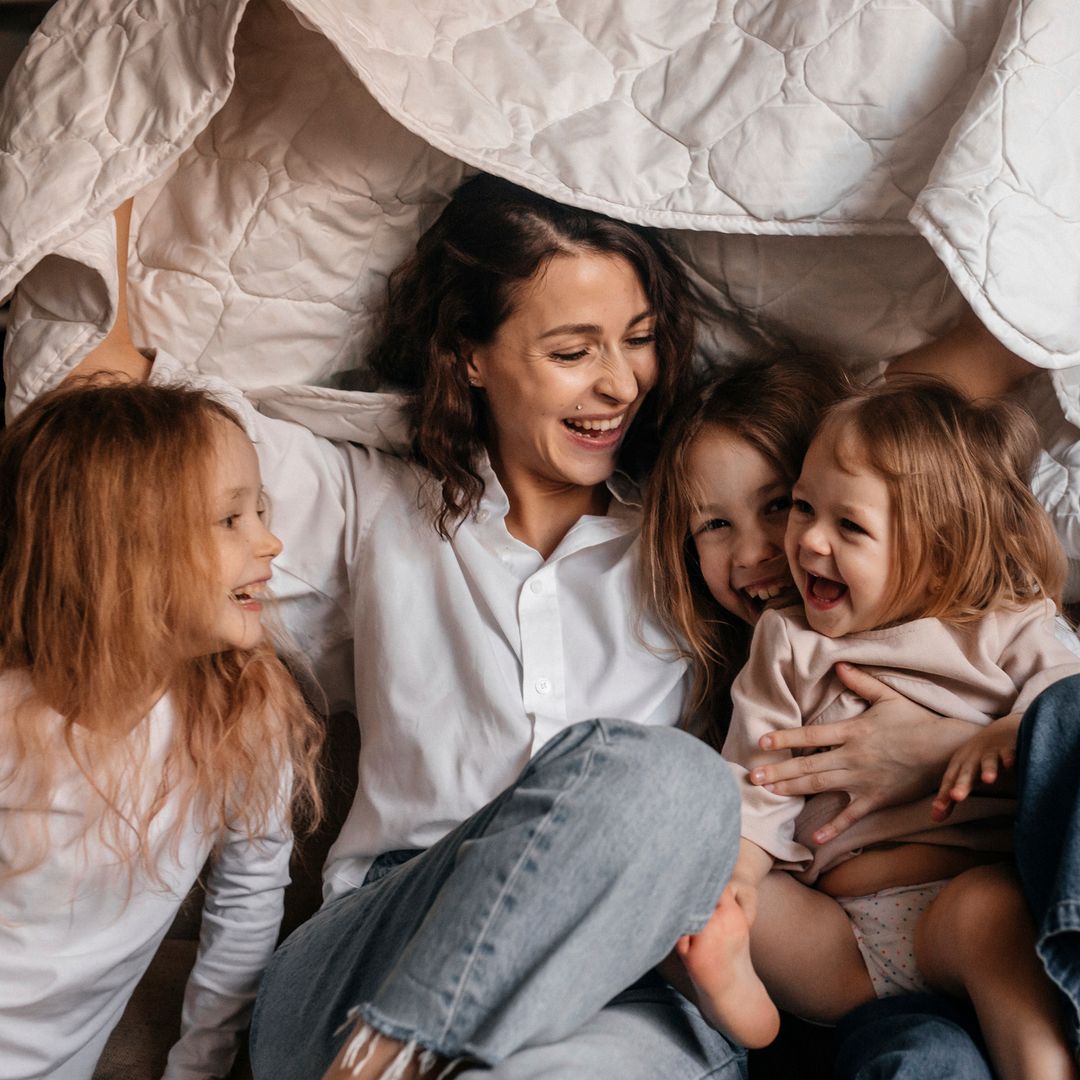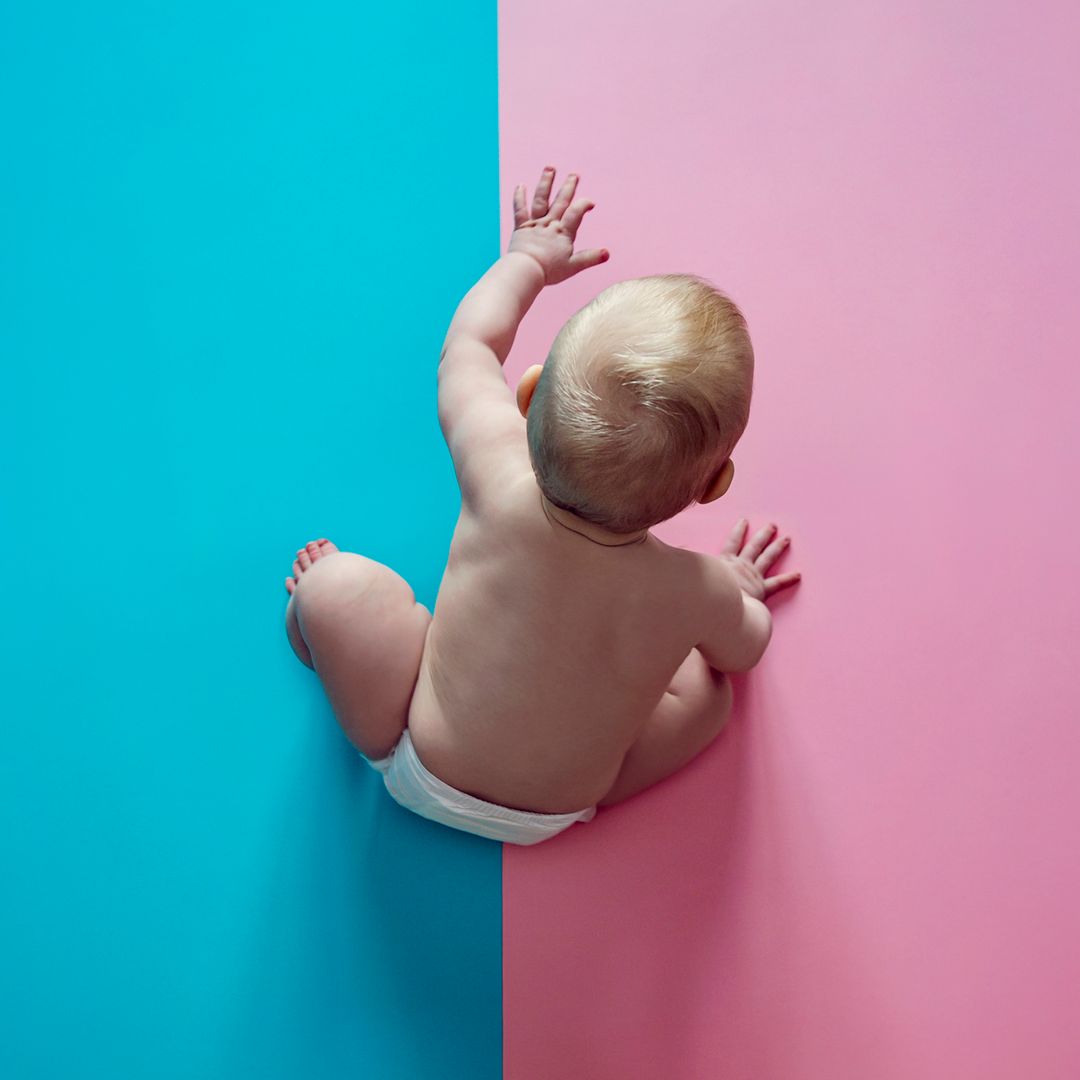Mention the words 'sleep training' in any parenting or caregiving circle and just about everyone will have an opinion. It's a controversial and taboo subject and understandably so.
Hearing your child cry is heart-wrenching and because sleep training is often, and mistakenly, associated with 'cry it out', most people will instantly think it's cruel to sleep train your baby.
READ: Baby sleep: 6 top tips for better and safer sleeping
From the day my daughter was born, she was pretty much a sleep thief. She only ever napped in the sling which meant I basically wore her for the first four months of her life. At night, we co-slept from when she was six weeks old, which was by far the best way for both of us to get any sleep, but even then she was waking every two or three hours and needing to feed back to sleep.
Baby sleep consultant Rachael Finlay solved all our sleep problems
None of the above is 'bad' or 'wrong'. It's all part of responsive or attachment parenting. But five months in and I was dreaming of a night when I could get more than three hours of unbroken sleep. I felt like I hadn't slept since summer 2022, no exaggeration. Pre-baby, sunset was my favourite time of the day. Post-baby, I dreaded the not knowing of how long my baby would go down for, or how many times she'd wake in the night. Cue: Little Baby Sleep Co.
Founder and qualified baby sleep consultant, Rachael Finlay, set up Little Baby Sleep Co. after becoming a mother herself. Having struggled with her own daughter's sleep and the overwhelming amount of conflicting sleep advice, she wanted other parents to realise that you don't need to be a sleep expert to help your baby sleep – you just need to know the basics. Whether your baby is a 'good' or 'bad' sleeper doesn't have to be down to luck.
READ: 7 top tips for new parents to help with their newborn
READ: How to dress baby for sleep in cold weather
I contacted Rachael when I was desperate for more sleep, but also confident that my baby was ready to start sleep training. Despite loving co-sleeping, I knew I needed my baby's sleep pattern and habits to change. So if you're in the same position and often Google, 'Why won't my baby sleep?' or 'How to get baby to sleep in a crib', keep reading…
Sleep training is teaching your baby to fall asleep by themselves
What is sleep training?
Sleep training is the practice of teaching your baby or child to fall asleep by themselves. It often gets such a bad rep because it's interpreted as shutting the bedroom door on your crying baby and leaving them to cry. This may be one method, but you don't have to use it by any means, and sleep training encompasses other, more gentle, methods.
"In my opinion independent sleep, which is the goal of sleep training, is one of the best skills you can give your baby," says Rachael. "Everyone gets more sleep because your baby has the newfound freedom to fall asleep independently and fall back to sleep if they wake mid nap or during the night and aren't due a feed."
"Imagine if every night you had to rely on someone, or something, to fall asleep and fall back to sleep if you woke in the night," adds Rachael. "And then suddenly you had the ability to do it all by yourself. That is essentially what you give your baby when they learn to fall asleep independently – the freedom to sleep on their own terms."
Is sleep training 'bad' for your baby?
"Sleep training is still a loaded phrase and despite the plethora of gentle sleep training techniques out there, it's sadly often used interchangeably with 'cry it out,'" says Rachael. "The reality is somewhat different. Yes, there might be some crying – you are making a change to the way your baby falls asleep and they might feel frustrated. It's your baby's way of saying, 'Why have you put me down awake in the cot when you usually rock me to sleep?'
"But choose a settling technique that suits your parenting style and baby's personality, make sure you feel confident in exactly how to use it, and you will find that if there is any crying it is short-lived, and your baby quickly learns how to fall asleep independently."
I always used to put my baby into her crib asleep before she learnt how to self-settle
When is the best age to sleep train?
Rachael says that between four and six months is the best age to sleep train because this is typically the age when your baby's sleep cycles will permanently change.
"You might know it as the four-month sleep regression and it's often when sleep associations become a catch 22," says Rachael. "From now on your baby, just like you, will subconsciously wake up at the end of each sleep cycle and check that everything is still the same as when they fell asleep before drifting into the next sleep cycle.
"If your baby is assisted to sleep, for example by rocking or feeding, they are more likely to wake up fully noticing something has changed and now they are awake they will need their sleep association to be returned in order to fall back to sleep. Teaching your baby to fall asleep independently is the simple way around this."
READ: When do babies start sleeping through the night?
Do all babies need to be sleep trained?
Not at all. You may find that from as early as six or eight weeks, your baby will sleep through the night, even if they're assisted to sleep such as feeding to sleep. But others may wake every two hours, like my baby!
"The decision to sleep train is entirely personal and situational," says Rachael. "If you and your family are happy and rested, there is no need to change anything. If sleep is a struggle, working on independent sleep will help turn things around."
Between four and six months is the best age to sleep train, says Rachael
What to think about before you sleep train your baby
From personal experience, once you've decided to sleep train your baby, you really have to commit to it. If you're doing it with your partner or another caregiver, you both have to be on the same page and make sure you're following the same plan, otherwise you could undo each other's work and progress during the whole process.
Yes, sleep training can involve a lot of tears, but it doesn't have to. Or it may not involve as much crying as you'd thought (which is what happened in our case from night one). Rachael says: "Do your homework. There are lots of different settling techniques that you can use to teach your baby to fall asleep by themselves and it's important that you choose one that aligns with your parenting style as well as your baby's personality, because you're going to need to stay consistent for it to work."
It's also worth noting that grizzling is a good sign! "Lots of babies will grizzle for five to ten minutes while they are assisted to sleep, so if your baby is grizzling in the cot this is a very good sign that they don't need further support from you to drift off," says Rachael. "It's important to recognise when to back off and give your baby space to settle and when they need more help calming down."
READ: 8 surprising sleep hacks from the royals
Logistically, it's easier to start sleep training at bedtime, before working on naps. "Using your settling technique at bedtime and overnight (when your baby isn't due a feed), while you assist naps during the day, is the easiest starting point," says Rachael. "It means your baby isn't overtired during the day, reduces crying, and makes everyone's experience easier. Once nights have improved, you can move on to naps."
It's also best to start on a Friday or Saturday or whenever your weekend falls, as, for the first few days, it might take your baby longer to fall asleep at bedtime and if they wake during the night, you may be more tired the following day. If you're doing it with a partner, they can also help out more on a weekend.
Sleep training can work in as little as three days for some babies
My experience with Little Baby Sleep Co.
I opted for a consultation with 2 weeks follow-up support, which includes daily WhatsApp support and allows Rachael to adapt your plan based on how your baby is responding. She explains this personalised approach is why her clients find that change often happens quickly where it hasn't before.
Before our kick off call, I filled out a detailed form about my baby's routine, personality/temperament, and sleeping and feeding patterns. Rachael was then able to explain exactly how we were going to get better sleep, covering everything from sleep environment to routine and in our case teaching our baby to fall asleep independently. If independent sleep is on the cards, she will suggest which settling technique will be right for you and your baby. I knew that I didn't want to opt for 'cry it out', but having tried the more gentle methods of shushing, rocking, 'picking up and putting down', it seemed my baby was actually getting more upset by my presence next to the cot. Rachael agreed.
After settling on 'spaced soothing', a technique that involves giving your baby space to settle and coming back into the room to offer more comfort if they need it, Rachael gave me a plan of what to do every night, as well as a back-up plan in case my baby didn't self settle in the agreed time.
She also set out a nap and feeding routine for my baby to follow, but provided simple adjustments when naps didn't go quite according to plan. Essentially, it was about making sure my baby got the right structure of day sleep to make it easier to self settle at night, and also ensuring she'd had the bulk of her calories during the day, so she wouldn't be waking to feed every two hours.
Some babies may love sleeping on their fronts
Another big change Rachael made was to my baby's sleep environment. As she was already rolling, Rachael suggested we move her from her bedside crib and into her cot to allow her the freedom to find her favourite sleep position. We also moved her into her own room and as Rachael predicted, our daughter adapted very quickly to her new sleep space – a lot faster than I did!
I'd heard that sleep training can work in as quickly as two or three nights, but I really didn't have much faith in my little sleep thief. I was, naturally, anxious on the first night as I wasn't sure how my baby would respond and dreaded thinking how long she would cry for. But from personal experience, I found the anticipation was a lot worse than actually going through with it.
READ: Celebrities expecting babies in 2023
On the first night, we put her down in her own cot and unsurprisingly, she started crying. My husband went in after the agreed time, cuddled her until she was calm, then left the room again and we reset the timer. We were fully expecting to go in for another check in but to our amazement, our baby stopped crying and fell asleep after a few minutes… all by herself, in her new bed, without being fed or rocked to sleep. I was astounded.
She did then wake up after an hour and so we repeated the process, but otherwise she didn't wake again until just after midnight for her feed and then around 4am for her next feed. Again, I was amazed. In just one night, we'd gone from waking every two or three hours and feeding to sleep, to only waking twice to feed, and a couple of other wake ups that didn't last long and saw my baby fall back to sleep unaided.
By night three, she had progressed to being able to fall asleep without crying at bedtime, and her first wake up was at 3:30am. She had slept a whole eight and a half hours! I was gobsmacked when I looked at the clock to go in to feed her. And then she didn't wake again until 7am.
One method of sleep training is 'spaced soothing'
My aim was never for her to sleep seven to seven. It was just to have fewer wake ups. Sleeping seven to seven was a pipe dream and something I thought my baby would do when she was of school age. I was already happy with just two wake ups, so when she went down to just one wake up on night three, I was stunned. And there really wasn't that much crying involved. No timing 40-minute intervals in the middle of the night as I'd anticipated and dreaded.
Our sleep plan included a night feed but night 12 was a big milestone as she actually slept through the night, from seven to seven. She did wake a couple of times and had a little low level cry, but put herself back to sleep within minutes. She'd proved to us that she could fall asleep independently and didn't actually need to feed every two hours. The change in less than two weeks was astounding and something I never thought would actually happen.
Throughout the whole two-week process, Rachael was on WhatsApp and messaging us with the best plan of action for when things didn't quite go as smoothly – such as with her long lunchtime nap which did take a bit longer to crack as is usually the case.
Rachael gave us all back our sleep, as well as teaching our baby how to sleep independently. She was incredibly sensitive to what we wanted and needed and only made tweaks and adjustments that we were happy with, while cheering us on and giving us the confidence to go through with sleep training. She was nothing short of a miracle worker and thanks to her, we can sleep easy knowing our baby is getting the rest that she needs, is absolutely loving her big cot and being undisturbed in her own room, and is always happy to see us in the mornings.
A few weeks ago I wouldn't have had the time to sit down and write a full article because naps didn't always go to plan and bedtime was certainly never at a set hour, despite trying to make it happen for months. But I've managed to put into words my experience while my baby is fast asleep in the other room, and that's all thanks to Rachael.
To book your own consultation with Rachael or to view her online sleep workshops and packages, visit littlebabysleepco.com.
Follow Rachael on instagram.com/littlesleepco
